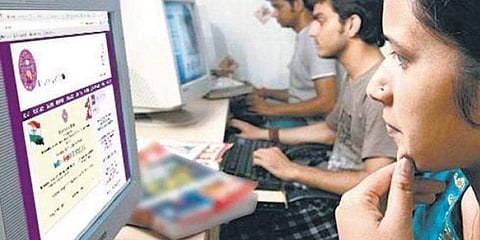
- News
- Campus
- Exam
- Podcast
- Web Stories
- Do You Know
- Path Finders - UG Programs
- Videos
- Élitscape

“To be, or not to be, that is the question: Whether ‘tis nobler in the mind to suffer The slings and arrows of outrageous fortune, Or to take arms against a sea of troubles And by opposing end them.”
— William Shakespeare (1564-1616) English dramatic poet in Hamlet
To be or not to be means more than one choice in the educational field today in the face of the COVID-19 pandemic that has thrown all sectors of education into turmoil and disruption. The following is typical of the wide reporting on the subject in print and electronic media – as a news website reported on December 5, 2020.
It has been two weeks since the colleges opened up for the final-year degree and post-graduate degree students. However, there has not been any appreciable improvement in the student attendance.
Compulsory COVID tests with negative certificate, availability of online classes, need to obtain a permission letter from parents, etc, seem to have kept students away from the colleges. Sources in the education department say that about 20 per cent of students alone are attending classes. There is information that some private colleges are resorting to pressure tactics to make students attend their classes.
Out of the three districts covered by Mangalore University, average attendance is more in Udupi and Kodagu districts. In Dakshina Kannada district, a large number of students seem to have chosen to attend online classes.
This trend is also reflected in the rush for admission to Karnataka State Open University. Up to the date of report (6/12/20), it had received over 17,000 applications for admissions for Karnataka’s only distance-learning centre. Its recognition had been suspended by UGC and had been restored only two years ago. It was becoming popular again among students and last year, it had received 12,000 applications.
The good response has prompted the UGC Distance Education Bureau to extend the July-cycle admissions to January 15, 2021, with the hope that this will help students who face disruptions because of the COVID pandemic.
Meanwhile, all stakeholders in the educational process are speaking in different tongues like in the account of Tower of Babel in the Old Testament of the Bible.
